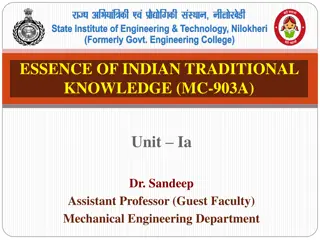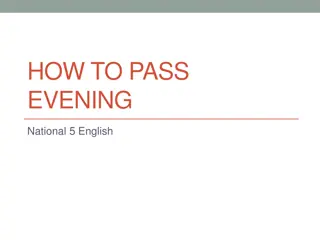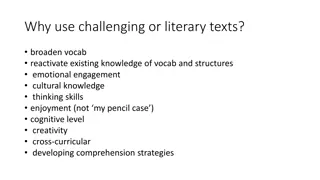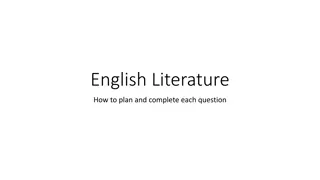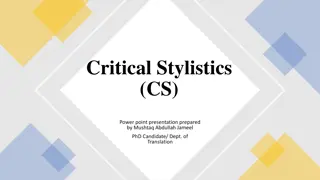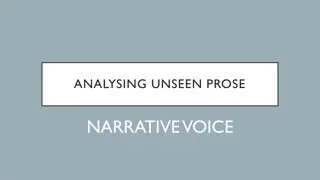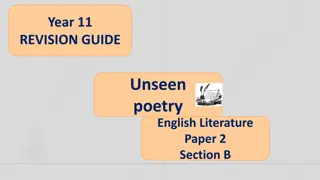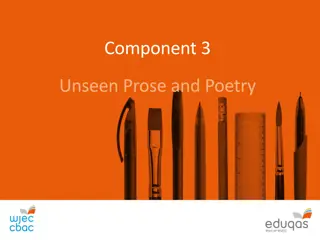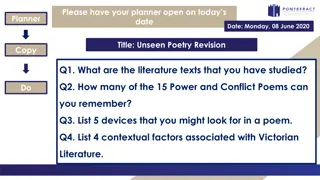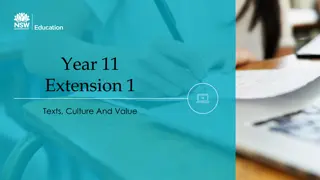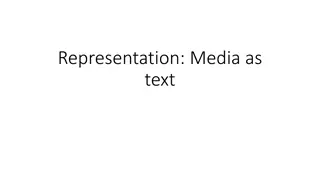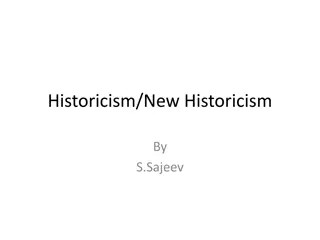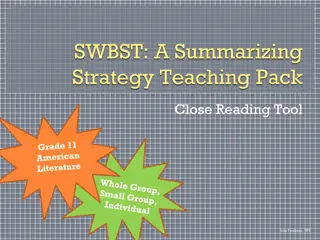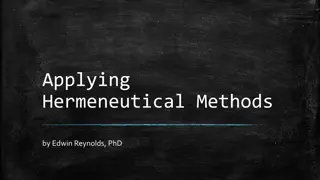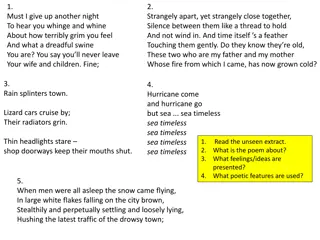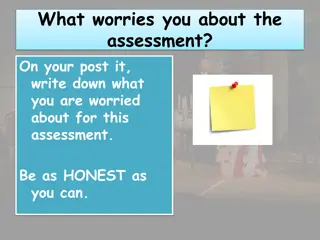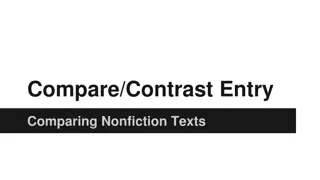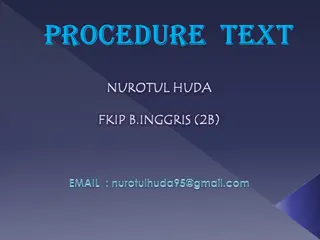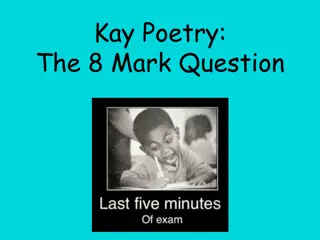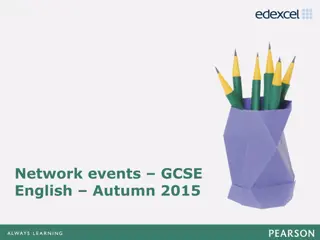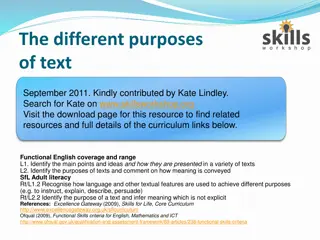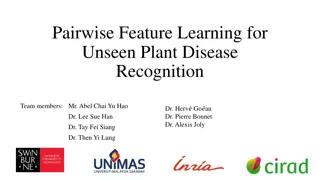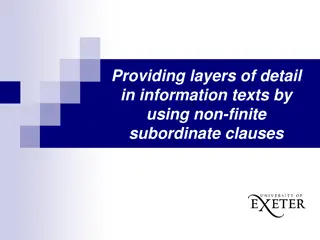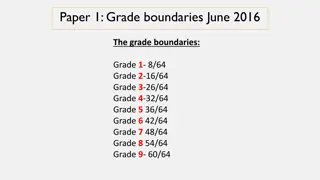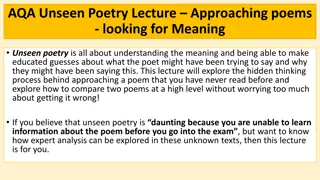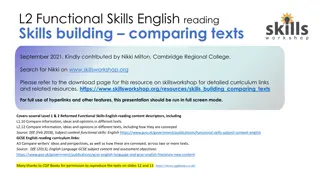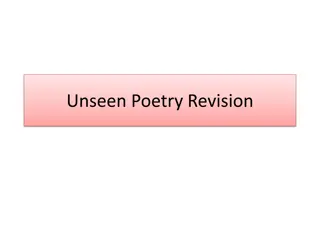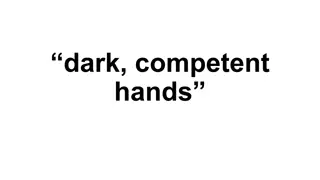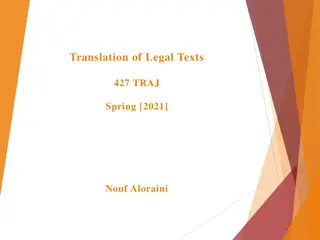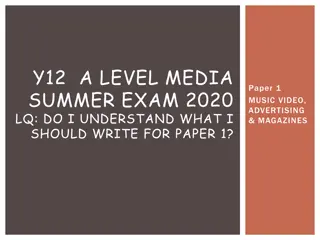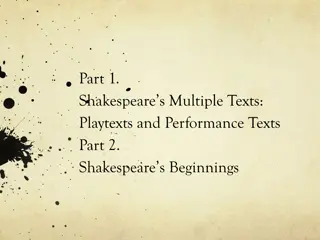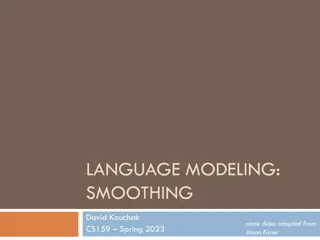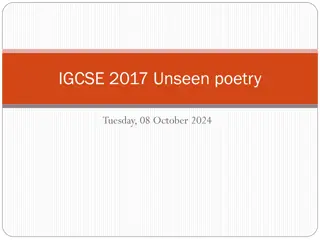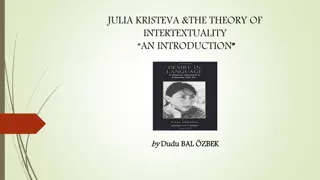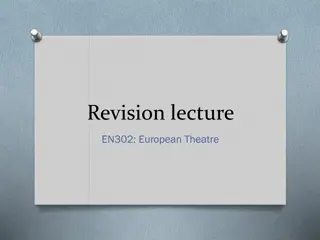Reading Opportunities at Branston Junior Academy
Discover a diverse range of reading opportunities at Branston Junior Academy for students in Year 3/4 and Year 5/6. The curriculum includes works by female and BAME authors, non-fiction, classics, and texts that challenge stereotypes. Students explore a variety of genres through engaging books like
0 views • 4 slides
Medieval English Texts: Cotton MS Nero A.X/2 and Sir Gawain and the Green Knight
Explore the rich literary realm of Medieval English texts through manuscripts like the Cotton MS Nero A.X/2, containing alliterative poetry in Middle English, featuring works like Pearl, Patience, Cleanness, and Sir Gawain and the Green Knight. Delve into the world of Sir Gawain and the Green Knight
0 views • 27 slides
The Essence of Indian Traditional Knowledge: Vedic Culture and History
The Vedas, ancient religious texts of Hinduism, provide essential knowledge about existence and the divine. Believed to have always existed, they were orally transmitted before being written down between 1500-500 BCE in India. The Vedas are considered among the oldest religious works and are categor
1 views • 41 slides
National 5 English Course Overview and Assessment Details
This National 5 English course covers detailed text analysis, critical essay writing, individual presentations, and group discussions. Students will study Scottish texts, genre texts, and non-fiction for understanding, analysis, and evaluation. Assessment includes internal assessments and a final ex
1 views • 20 slides
Enhancing Language Skills Through Challenging Literary Texts
Broaden vocabulary, reactivate knowledge, and engage emotionally with challenging literary texts to develop comprehension strategies, cultural awareness, and cognitive skills. Utilize various media sources and explicit instruction to access more complex texts, fostering creativity and cross-curricul
4 views • 28 slides
Literature Exam Strategies for Success
Explore effective planning and completion strategies for English Literature exam questions, covering key texts like Macbeth, A Christmas Carol, An Inspector Calls, Power and Conflict Poetry, and Unseen Poetry. Learn how to analyze extracts, identify themes, select quotes, and structure your response
4 views • 17 slides
Understanding Critical Stylistics: Tools and Application
Critical Stylistics (CS) is a method that delves into the ideological underpinnings of texts through the analysis of linguistic features. Developed by Jeffries, CS focuses on uncovering implicit ideologies embedded in texts by examining stylistic choices. By integrating stylistics and critical disco
2 views • 28 slides
Understanding Narrative Perspective in Unseen Prose Narratives
Explore the narrative voice in unseen prose narratives through the analysis of different narrative perspectives, such as homodiegetic and heterodiegetic narrators. Understanding these terms helps in interpreting the impact of perspective on storytelling and themes in literary texts for exam preparat
1 views • 17 slides
Unseen Poetry Analysis Guide with Poem Examples
Explore the theme of death in unseen poetry with detailed analysis of poems such as "Funeral Blues" and "About His Person." Understand how poets use figurative language, metaphors, and imagery to convey deep emotions and messages. Practice identifying powerful quotations and literary devices to enha
0 views • 19 slides
Insights into Unseen Prose and Poetry Analyses
Delve into the assessment of unseen prose and poetry with a focus on introductions, candidate evaluations, and critical engagement. Explore the importance of contextual references, vocabulary analysis, and integration of other readings in shaping responses to literary texts.
1 views • 12 slides
Unseen Poetry Revision: Exploring Literary Texts, Devices, and Contexts
Delve into the world of unseen poetry revision by analyzing literary texts, exploring poetic devices, and understanding contextual factors associated with Victorian Literature. Engage in vocabulary challenges, pre-reading activities, and discussions to enhance your understanding of poetry. Enhance y
3 views • 24 slides
Exploring Texts, Culture, and Value Through Appropriation
In Year 11 Extension 1, students delve into texts from the past and their influence on present culture. They analyze the relationships between texts and culture, language's impact on values, and different responses to texts. Through close study, they explore key texts from the past, examining how th
0 views • 9 slides
Understanding Representation in Media Studies
Representation in media studies refers to how aspects of society such as gender, age, ethnicity, and identity are presented to audiences through media texts. These texts have the power to influence ideas and attitudes by shaping the audience's understanding of important topics. Analyzing media texts
1 views • 19 slides
Exploring Historicism and New Historicism: Perspectives on History and Literature
Understanding Historicism and New Historicism, this article delves into their definitions, perspectives on history, treatment of literary and non-literary texts, examples, and the emergence of New Historicism in the 1980s. It explores how these approaches unify cultural and social texts, challenge t
0 views • 16 slides
SWBST Summarizing Strategy Teaching Pack Overview
SWBST is a summarizing strategy designed by Julie Faulkner to help readers comprehend texts effectively. It entails breaking down texts into key components: Somebody (main character/speaker/author) Wanted (motivation), But (problem/conflict), So (solution), Then (resolution). The strategy aids in hi
0 views • 18 slides
Comparative Hermeneutics: Understanding Biblical Texts
Explore the application of hermeneutical methods on biblical texts such as Psalm 23 and 1 Tim. 2 through interpretation, translation, and contextual analysis. Delve into the meaning of texts, the role of signs and symbols, and the impact of varying presuppositions on interpretation. Reflect on the p
0 views • 46 slides
GCSE English Literature Exam Overview
This overview provides information on the GCSE English Literature exam structure, content, and assessment objectives for both components. It includes details on the texts studied, such as Shakespeare, poetry, post-1914 prose/drama, and 19th-century prose. Students are assessed on their ability to re
0 views • 23 slides
GCSE English Literature Exam Overview
This GCSE English Literature exam overview provides details on the components, assessment objectives, text choices, and key information for students. It covers Shakespeare, Poetry, Post-1914 Prose/Drama, 19th Century Prose, and Unseen Poetry. Students will engage with a variety of texts ranging from
5 views • 23 slides
Reflections on Poetry and Unseen Questions
Explore the essence of poetry through vivid imagery, emotional depth, and poetic features. Delve into unseen questions on poems and interpret them perceptively. Understand the power of language, structure, and form in conveying the poet's ideas effectively.
0 views • 35 slides
Literature Assessment: Understanding Modern Texts and Poetry
This assessment focuses on modern texts, poetry, and unseen poetry, evaluating students' ability to analyze literary works and demonstrate understanding. Students must be prepared to write essays and respond to various types of questions within a time limit. Key areas covered include Sheila's charac
0 views • 16 slides
Analyzing Nonfiction Texts: Comparing Structures and Evidence
Explore how two nonfiction texts, "Watch Your Driving, Kids" and an Allstate Foundation video, present statistics on teen car crashes and propose solutions. Dive into the authors' text organization and credibility, unveiling similarities in the texts' structures and evidence presentation.
0 views • 10 slides
Unseen Passage on Jivanananda Das - English Teacher at Jalalabad B/L High School
Md. Shahneoaz, an Assistant Teacher of English at Jalalabad B/L High School, Sylhet, provides an unseen passage about the life of Jivanananda Das. The passage discusses Das's birth, education, teaching career, achievements, and untimely demise in 1954. Students are introduced to new words and tasked
0 views • 15 slides
Understanding Procedure Texts and their Structure
Procedure texts are instructional pieces of writing that explain how something works or how to perform a specific activity. They typically consist of three main definitions: texts that explain how to use something, texts that provide instructions for a particular activity, and texts that address hum
0 views • 10 slides
Mastering the Structure of Final Questions for Scottish Set Texts
Learn how to effectively structure your answer to an 8-mark question for Scottish set texts by utilizing bullet points and specific headings. Understand the key components of General Comment, Exam Poem, and Other Poem sections. Enhance your ability to choose and analyze relevant material from both s
0 views • 13 slides
GCSE English Language Assessment Overview
This content outlines the assessment structure for GCSE English Language, covering paper details, assessment objectives for reading, and session agenda for Autumn 2015. It includes information on unseen texts, creative writing, transactional writing, and evaluation. Students will be assessed on read
0 views • 24 slides
Understanding the Various Purposes of Texts
Explore the diverse functions of texts and how they convey meaning, from spooky holiday advertisements to cooking instructions and flu immunization details. Discover how language and textual features are used to achieve different purposes, and learn to identify implicit meanings in texts. Enhance yo
0 views • 9 slides
Pairwise Feature Learning for Unseen Plant Disease Recognition
Plant diseases pose a significant threat to agricultural production, often caused by pathogenic organisms. This project focuses on pairwise feature learning for the recognition of unseen plant diseases. The research aims to design a model that can effectively classify both seen and unseen compositio
0 views • 11 slides
Enhancing Information Texts with Non-Finite Subordinate Clauses
Providing layers of detail in information texts involves using non-finite subordinate clauses to establish connections between grammar, meaning, and rhetorical effects. The LEAD principles emphasize linking grammar to writing purposefully, using authentic texts as models, and fostering deep metaling
0 views • 8 slides
Analyzing Unseen Poetry: Techniques, Themes, and Structure
Explore the nuances of analyzing unseen poetry using techniques such as imagery, alliteration, and metaphor. Understand how to decipher themes, speaker, and tone in poems for a comprehensive analysis. Learn to interpret rhyme schemes, stanzas, and structures to uncover the deeper meaning behind poet
0 views • 13 slides
Approaching Unseen Poetry in Exams: Understanding and Analysis
Exploring the process of analyzing unseen poetry in exams, focusing on understanding and making educated interpretations. Tips on comparing poems, time management, and assessment objectives are discussed in this lecture.
0 views • 21 slides
Enhancing Reading Skills: Comparing Texts for English Learners
Enhance your English reading skills by comparing texts to identify similarities and differences. Practice analyzing information, ideas, and opinions in different texts, including how they are conveyed. This resource provides exercises and examples to help you develop your ability to compare and cont
0 views • 14 slides
Exploring Unseen Poetry Through Analysis and Revision
Delve into the world of unseen poetry with a focus on analyzing the poem "My Itchy Toes Smell Loads!" Understanding the poem's themes, imagery, tone, language devices, and structure is key to unraveling its meaning. Additionally, consider revisiting poems from different clusters in your anthology to
0 views • 7 slides
Analysis of Word Choices and Attitudes in Literary Texts
The provided content delves into the representation of characters through word choice and attitudes in various literary texts. It examines the implications behind phrases like "dark, competent hands" and "Mandy got her degree, did she? Dog my cats", shedding light on underlying biases and perspectiv
0 views • 16 slides
Translation of Legal Texts Course Overview
This course provides a comprehensive overview of translating legal texts from English into Arabic and vice versa. Students will explore various types of legal texts, specialized terminology, and resources essential for accurate translation. The course covers the history of legal discourse, emphasizi
0 views • 50 slides
Understanding Paper 1 Requirements for Y12 A-Level Media Summer Exam 2020
Paper 1 of the Y12 A-Level Media Summer Exam 2020 focuses on music videos, advertising, and magazines. It consists of three questions, each worth 15 marks, requiring analysis of media language and representation. Questions cover topics such as music videos (using set texts like Titanium or Heaven),
0 views • 21 slides
Understanding Shakespeare's Playtexts and Performance Texts
Dive into Shakespeare's world of multiple texts, exploring the nuances between playtexts and performance texts. Discover the collaborative nature of early modern playwriting and the significance of deciphering performance elements in comprehending his works. Unveil the intersection of written words
0 views • 9 slides
Language Modeling Smoothing Techniques Overview
In this content, the focus is on language modeling smoothing techniques with examples from an academic course. Topics covered include the importance of smoothing in handling unseen events, maintaining true probability distributions, and practical applications in natural language processing. The text
0 views • 52 slides
Essential Guide for Analyzing Unseen Poetry in Exams
Effective strategies for approaching unseen poetry questions in exams include understanding the format, identifying voice and situation, analyzing language choices and imagery, looking for anomalies, and trusting your intuition to craft a personal response. This guide emphasizes the importance of cl
0 views • 15 slides
Julia Kristeva & the Theory of Intertextuality: An Introduction
In this introduction to Julia Kristeva's theory of intertextuality, we explore her concept of texts as intersections of various writings rather than fixed points of meaning. Kristeva argues that texts are composed of prior existences, forming a mosaic of quotations and transformations. Intertextuali
0 views • 25 slides
Exam Rubric and Guidelines for European Theatre Module
The content discusses important information regarding the exam rubric for the European Theatre module, including guidelines on time limits, permitted topics, penalties for violations, and advice on handling exam questions. It clarifies rules on writing about the same texts as in coursework essays, s
0 views • 29 slides


